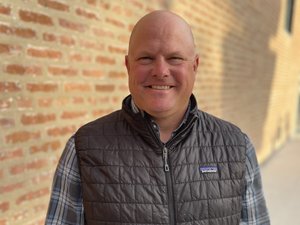
For consumers who want to buy goods and services from women-owned businesses, a Chicago startup is making it easier to find them all in one place.
Bossy Chicago, an online directory of businesses owned by cis-women, trans women and gender nonbinary entrepreneurs, won audience favorite at the AnitaB.org PitcHER contest, taking home $15,000. Now, the startup is aiming to draw more businesses to the platform and sort out its monetization strategy.
The funding from the AnitaB.org contest helped Sam Letscher, founder of Bossy Chicago, to run the site full-time, but she said she is bootstrapping the company rather than pursuing venture capital funding. The platform currently has about 400 businesses listed.
“Right now we’re ... focusing on improving our ability to drive more business to businesses, improving the experience of the shop on Bossy, the usability of our site, and building up that community so that we really are adding value,” Letscher said. “I do hope to expand, but we’re hoping to expand city by city and keep it a local resource … just being really intentional about the relationship between the customer and business owner.”
In the first quarter of 2019, Letscher is looking to hire a community manager and a software developer to help connect business owners with one another and further customize the site. For now, the site will focus on growing its footprint in Chicago before expanding to other cities, she said.
She’s the only full-time employee working on the site but has had help from her Northwestern University classmates as she launched the site in July 2017. She started Bossy while earning her bachelor’s degree in Integrated Engineering Studies at Northwestern University and working on a mayoral campaign.
Chicagoans interested in supporting local businesses can find everything from home goods and clothing to restaurants and professional services. For now, the platform is web-based, but Letscher said the platform could be an app in the future.
Similar women-owned business directories include Women Owned and Feminist.com’s directory. Letscher said she wants Bossy to be the top platform for searching for women-owned businesses in all major cities but aims to grow the site “the right way.”
“We're taking a local approach and have a single-minded focus of connecting women-owned businesses to feminist consumers,” she wrote. "Buying women-owned is and should be intertwined with shopping local and supporting your community.”
Letscher’s decision to start and grow small in Chicago stems in part from her goal to foster deeper connections between consumers and merchants, which can be challenging for other platforms that small businesses use to attract customers, she said.
“A lot of small business owners invest in things like Groupon where they give these hugely discounted services where the people come because they wanted the discount and they don’t come back,” Letscher said.
Research shows that consumers are basing more of their purchase decisions on company ethics and beliefs. More than 51 percent of respondents to a 2016 Morgan Stanley survey said ethical credentials were either important or very important when making purchasing decisions, and younger consumers between the ages of 16 and 44 see ethics as very or somewhat important.
At the same time, more women are starting businesses in the U.S. but do not always receive the same level of funding as their male counterparts. From 1997 to 2017, the number of women-owned businesses jumped by 114 percent and their revenue rose by 103 percent, according to the 2017 State of Women-Owned Business Report by American Express. For most funding sources ranging from venture capital to banks and other financial institutions, women-owned businesses are less likely to receive the full amount of funding they request, according to a 2018 Institute for Women’s Policy Research report.
As Bossy hones its operations in Chicago, Letscher wants the site to be a resource for businesses regardless of whether they are explicitly feminist.
“Not all brands are feminist or necessarily putting their woman-owned identity as essential to their brand, and that’s okay,” Letscher said. “The businesses are about the amazing products on our site, not the fact that they’re woman-owned.”








